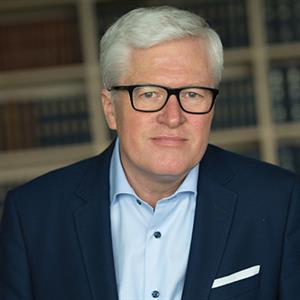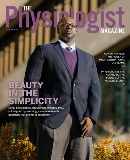
In December, I had the opportunity to speak to a group of physiology graduate students and postdocs about getting involved in APS, as part of our Next Generation Scientists webinar series.
As part of my preparation for the talk, I asked our APS Council members, section chairs and others to reflect on their early experiences with the Society and the impact it had on their careers. These leaders view becoming engaged with APS as a pivotal—even
defining—event in their careers.
For APS Councilor Ann Schreihofer, PhD, FAPS, professor at the University of North Texas Health Science Center in Fort Worth, finding APS was finding a scientific home. “I was first introduced
to APS as a graduate student and my attendance at my first annual meeting,” Schreihofer said. “APS has been my scientific home ever since. I honestly believe APS was essential for my career development, and I do not think I would
have been successful as an academic scientist without the network I developed as a member, participant and leader in APS activities.”
APS Publications Committee Chair David Gutterman, MD, FAPS, Northwestern Mutual Professor of Medicine at the Medical College of Wisconsin in Milwaukee, spoke about APS providing his earliest opportunities to both present his science and meet his heroes.“APS is where I presented my first oral abstract and where I submitted (and eventually got accepted) my first paper (American Journal of Physiology-Heart and Circulatory Physiology),” Gutterman said. “What I remember as the attraction to APS that lured me in and kept me involved was the prestige of the Society and the annual meeting. All the researchers who I admired came to the meeting. Not only did I get a chance to present to them, but also to meet them personally and talk science.”
Teaching Section Chair and physiology educator Patricia Halpin, PhD, associate professor at the University of New Hampshire at Manchester, draws a direct line between her involvement in APS and her career success. “The colleagues I met in the Teaching Section encouraged me to present my work at APS meetings, apply for awards, apply to serve on APS committees and run for chair of the Teaching Section,” Halpin said. “They have also collaborated with me on symposia both in the U.S. and abroad, on grants and on manuscripts. All of this helped me to be granted early tenure and promotion.”
Respiration Section Chair Melissa Bates, PhD, assistant professor of health and human physiology, internal medicine and pediatrics at the University of Iowa in Iowa City, also believes that getting engaged early in the Society has had a tremendous impact in launching her career. “As a first-year postdoc, I was recruited to be the trainee representative for the Respiration Section and found people incredibly welcoming,” Bates said. “It amazes me that I am now chair of the section I started with as a trainee! I’ve formed collaborations, found help writing grants and papers, and made connections for my faculty job search and promotion among APS members. There is no doubt in my mind that my involvement in APS has catalyzed my career.”
Trainees face enormous time pressures and stress navigating the first steps of their careers. They face considerable demands in both the classroom and the lab, and getting involved in a scientific society can often seem like a luxury they cannot afford. But the reality is that for many highly respected leaders in the field, getting engaged early in APS was not merely a nice extra, but an essential ingredient for a successful career in science
Scott Steen, CAE, FASAE, is executive director of the American Physiological Society.
This article was originally published in the January 2021 issue of The Physiologist Magazine.
The Physiologist Magazine
Read the Latest Issue
Don’t miss out on the latest topics in science and research.
View the Issue Archive
Catch up on all the issues of The Physiologist Magazine.
Contact Us
For questions, comments or to share your story ideas, email us or call 301.634.7314.


